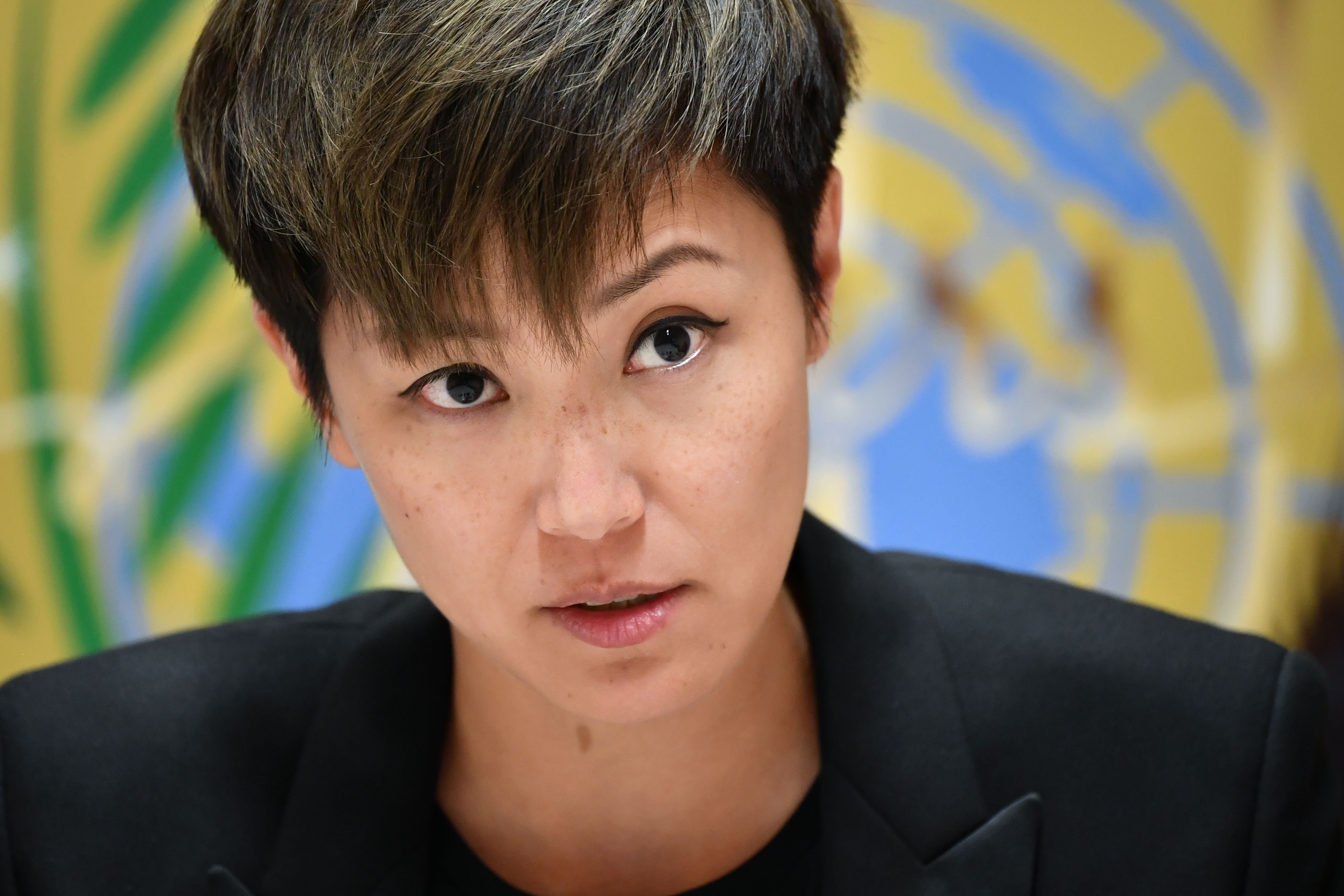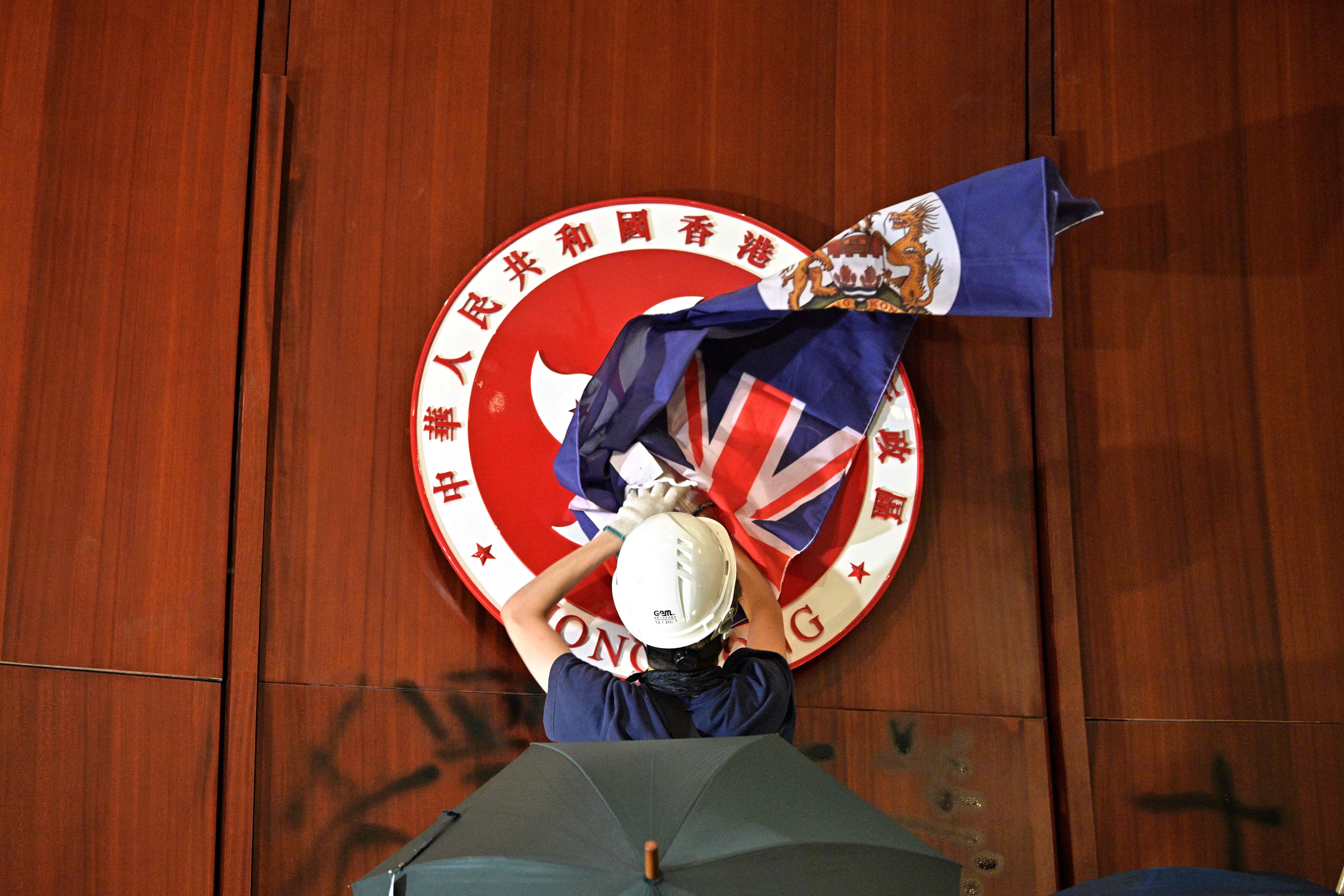The bill requires the U.S. president to condemn abuses against Muslims and call for the closure of concentration camps in the northwestern colony of East Turkestan.
Reuters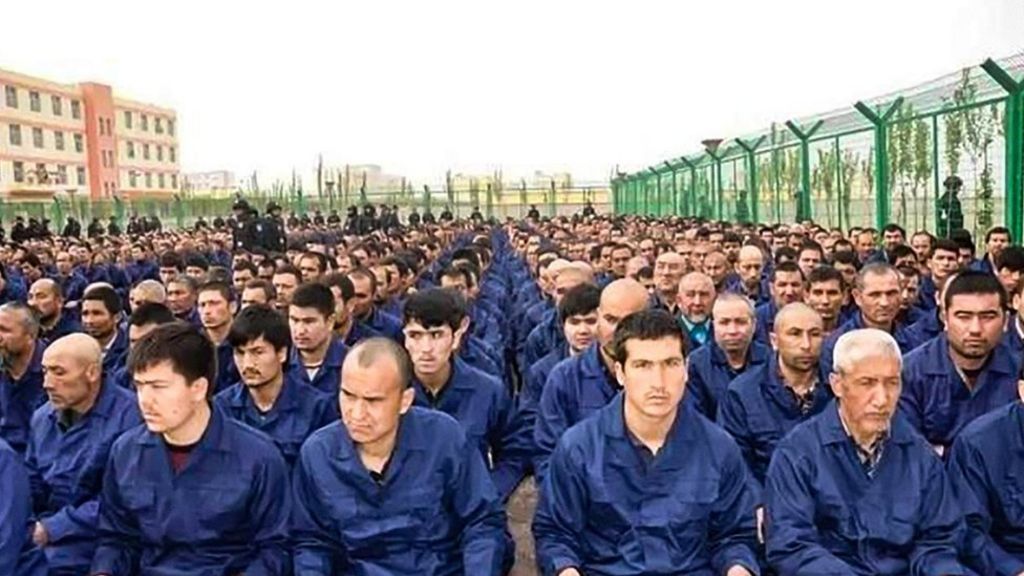
WASHINGTON -- The U.S. House of Representatives on Tuesday overwhelmingly approved a bill that would require the Trump administration to toughen its response to China’s crackdown on its Muslim minority, demanding sanctions on senior Chinese officials and export bans.
The Uighur Act of 2019 is a stronger version of a bill that angered Beijing when it passed the Senate in September.
It calls on President Donald Trump to impose sanctions for the first time on a member of China’s powerful politburo, even as he seeks a trade deal with Beijing.
The bill, passed 407 to 1 in the House, requires the U.S. president to condemn abuses against Muslims and call for the closure of concentration camps in the northwestern colony of East Turkestan.
It calls for sanctions against senior Chinese officials who are responsible and specifically names East Turkestan Communist Party Secretary Chen Quanguo, who, as a politburo member, is in the upper echelons of China’s leadership.
It calls for sanctions against senior Chinese officials who are responsible and specifically names East Turkestan Communist Party Secretary Chen Quanguo, who, as a politburo member, is in the upper echelons of China’s leadership.
The revised bill still has to be approved by the Senate before being sent to President Trump.
The White House has yet to say whether Trump would sign or veto the bill, which contains a provision allowing the president to waive sanctions if he determines this to be in the national interest.
The White House and the Chinese embassy in Washington did not immediately respond to requests for comment.
The bill comes days after President Trump signed into law congressional legislation supporting anti-government protesters in Hong Kong.
China responded to that on Monday by saying U.S. military ships and aircraft would not be allowed to visit Hong Kong, and announced sanctions against several U.S. non-government organizations.
Analysts say China’s reaction to passage of the Uighur bill could be stronger, though some doubted it would go so far as imposing visa bans on the likes of Secretary of State Mike Pompeo, who has called China’s treatment of Uighurs “the stain of the century”.
The White House and the Chinese embassy in Washington did not immediately respond to requests for comment.
The bill comes days after President Trump signed into law congressional legislation supporting anti-government protesters in Hong Kong.
China responded to that on Monday by saying U.S. military ships and aircraft would not be allowed to visit Hong Kong, and announced sanctions against several U.S. non-government organizations.
Analysts say China’s reaction to passage of the Uighur bill could be stronger, though some doubted it would go so far as imposing visa bans on the likes of Secretary of State Mike Pompeo, who has called China’s treatment of Uighurs “the stain of the century”.
“MODERN-DAY CONCENTRATION CAMPS”
Republican Congressman Chris Smith called China’s actions in “modern-day concentration camps” in East Turkestan “audaciously repressive,” involving “mass internment of millions on a scale not seen since the Holocaust.”
“We cannot be silent. We must demand an end to these barbaric practices,” Smith said, adding that Chinese officials must be held accountable for “crimes against humanity.”
Democratic House Leader Nancy Pelosi called China’s treatment of the Uighurs “an outrage to the collective conscience of the world.”
“America is watching,” she said.
Chris Johnson, a China expert at Washington’s Center for Strategic and International Studies, said passage of the bill could lead to a further blurring of lines between the trade issue and the broader deteriorating Sino-U.S. relationship, which China in the past has tended to keep separate.
“I think there’s a sort of piling on factor here that the Chinese are concerned about,” he said.
President Trump said on Monday the Hong Kong legislation did not make trade negotiations with China easier, but he still believed Beijing wanted a deal.
However, on Tuesday, he said an agreement might have to wait until after the U.S. presidential election in November 2020.
The House bill requires the president to submit to Congress within 120 days a list of officials responsible for the abuses and to impose sanctions on them under the Global Magnitsky Act, which provides for visa bans and asset freezes.
Democratic lawmaker Brad Sherman said it was “long past the point when this should have been done,” adding: “It should not be linked to ongoing negotiations on trade or any other issues.”
The bill also requires the secretary of state to submit a report on abuses in East Turkestan, to include assessments of the numbers held in re-education and forced labor camps.
“America is watching,” she said.
Chris Johnson, a China expert at Washington’s Center for Strategic and International Studies, said passage of the bill could lead to a further blurring of lines between the trade issue and the broader deteriorating Sino-U.S. relationship, which China in the past has tended to keep separate.
“I think there’s a sort of piling on factor here that the Chinese are concerned about,” he said.
President Trump said on Monday the Hong Kong legislation did not make trade negotiations with China easier, but he still believed Beijing wanted a deal.
However, on Tuesday, he said an agreement might have to wait until after the U.S. presidential election in November 2020.
The House bill requires the president to submit to Congress within 120 days a list of officials responsible for the abuses and to impose sanctions on them under the Global Magnitsky Act, which provides for visa bans and asset freezes.
Democratic lawmaker Brad Sherman said it was “long past the point when this should have been done,” adding: “It should not be linked to ongoing negotiations on trade or any other issues.”
The bill also requires the secretary of state to submit a report on abuses in East Turkestan, to include assessments of the numbers held in re-education and forced labor camps.
United Nations experts and activists say at least 1 million Uighurs and members of other largely Muslim minority groups have been detained in the camps.
It also effectively bans the export to China of items that can be used for surveillance of individuals, including facial and voice-recognition technology.
It also effectively bans the export to China of items that can be used for surveillance of individuals, including facial and voice-recognition technology.

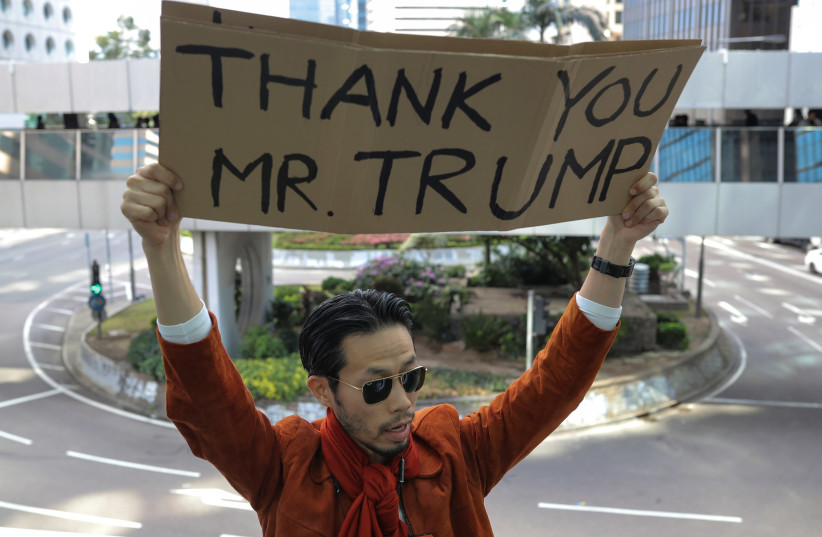
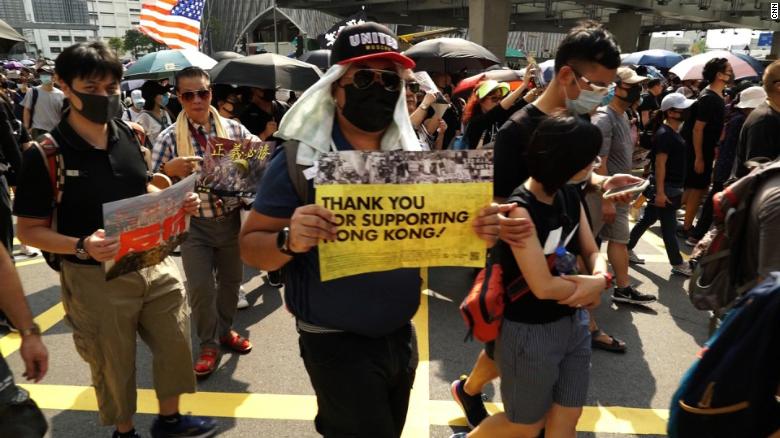
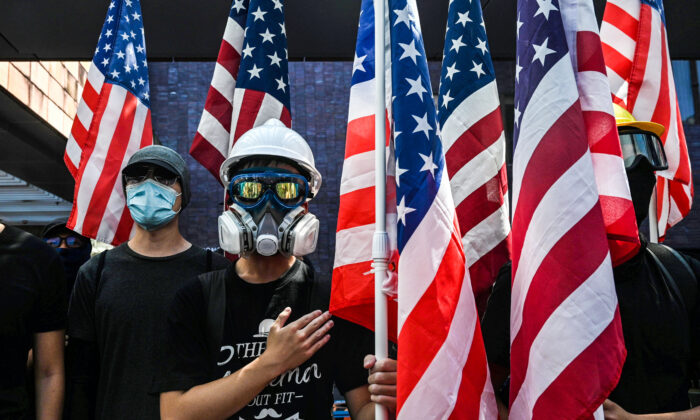
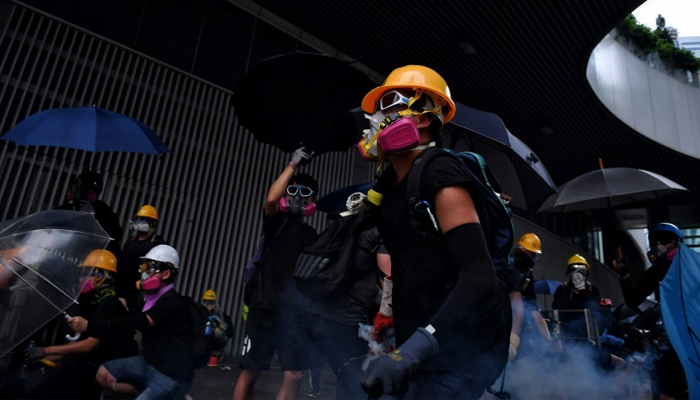





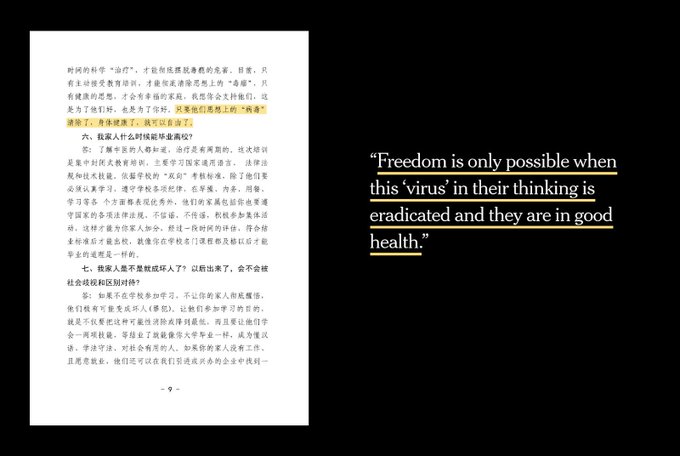
 Hikvision cameras in a mall in Beijing in May. The company was among those blacklisted by the Trump administration this week.
Hikvision cameras in a mall in Beijing in May. The company was among those blacklisted by the Trump administration this week.




